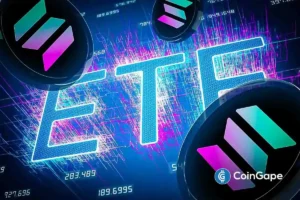Staking is a process that allows investors to lock up their Ethereum to validate transactions and earn rewards. According to Tom Wan, a former crypto analyst, staking could significantly boost the flow of investments into US-traded Ethereum exchange-traded funds (ETFs). As of now, no US-based Ethereum ETFs include staking due to regulatory concerns raised by the SEC. Wan believes that staking could be a game-changer for these funds, reducing management fees and increasing incentives for investors.
Wan explained that by staking ETH within ETFs, management fees could be reduced significantly, making Ether ETFs more appealing and affordable. He estimated that staking within ETFs could add between 550,000 and 1.3 million ETH to the total staked supply, pushing it to new highs and attracting more investors. Major ETF issuers like 21Shares and Bitwise are already well-versed in staking, giving them an advantage over firms with lower assets under management (AUM). Smaller firms may offer higher staking yields to attract investors and compete effectively.
Staking through ETFs could also reshape the Ethereum staking landscape by channeling more funds into staking pools and centralized exchanges, improving liquidity in the process. Wan suggested that ETF issuers explore liquid staking solutions like Lido’s liquid staking token stETH to enable investors to withdraw funds more efficiently. Overall, staking could help Ethereum ETFs realize their full potential and compete more effectively with Bitcoin ETFs, offering a solid alternative in the crypto investment space.
In Europe, companies like CoinShares and Bitwise have already started offering staking rewards alongside lower fees, showing the viability of this approach. Wan noted that while issuers like VanEck and 21Shares still charge management fees, their staking yields are often enough to cover costs. He pointed out that by reducing fees and increasing incentives, staking through ETFs could make Ether ETFs more attractive to investors and contribute to the stability of the Ethereum network.
Despite the potential benefits of staking in Ethereum ETFs, no US-based ETFs currently include this feature due to regulatory concerns. The SEC has questioned whether staking services could be considered unregistered securities offerings, creating a barrier to the success of these funds. However, Wan believes that with the right implementation, staking could be a game-changer for Ethereum ETFs, enabling them to compete more effectively with Bitcoin ETFs and attract more investment in the process.

















